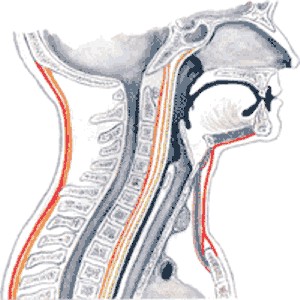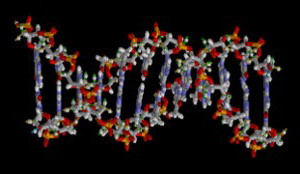 The Parkinson’s Disease Foundation has announced awards totalling more than $1 million for 11 novel research projects, which they claim are "designed to understand the cause(s) of and find a cure for Parkinson’s disease." The research ranges from basic science investigations to studies of potential new therapies and symptomatic relief.
The Parkinson’s Disease Foundation has announced awards totalling more than $1 million for 11 novel research projects, which they claim are "designed to understand the cause(s) of and find a cure for Parkinson’s disease." The research ranges from basic science investigations to studies of potential new therapies and symptomatic relief. WELCOME TO OUR PARKINSON'S PLACE!
I HAVE PARKINSON'S DISEASES AND THOUGHT IT WOULD BE NICE TO HAVE A PLACE WHERE THE CONTENTS OF UPDATED NEWS IS FOUND IN ONE PLACE. THAT IS WHY I BEGAN THIS BLOG.
I COPY NEWS ARTICLES PERTAINING TO RESEARCH, NEWS AND INFORMATION FOR PARKINSON'S DISEASE, DEMENTIA, THE BRAIN, DEPRESSION AND PARKINSON'S WITH DYSTONIA. I ALSO POST ABOUT FUNDRAISING FOR PARKINSON'S DISEASE AND EVENTS. I TRY TO BE UP-TO-DATE AS POSSIBLE.
I AM NOT RESPONSIBLE FOR IT'S CONTENTS. I AM JUST A COPIER OF INFORMATION SEARCHED ON THE COMPUTER. PLEASE UNDERSTAND THE COPIES ARE JUST THAT, COPIES AND AT TIMES, I AM UNABLE TO ENLARGE THE WORDING OR KEEP IT UNIFORMED AS I WISH. IT IS IMPORTANT TO UNDERSTAND I AM A PERSON WITH PARKINSON'S DISEASE. I HAVE NO MEDICAL EDUCATION,
I JUST WANT TO SHARE WITH YOU WHAT I READ ON THE INTERNET. IT IS UP TO YOU TO DECIDE WHETHER TO READ IT AND TALK IT OVER WITH YOUR DOCTOR. I AM JUST THE COPIER OF DOCUMENTS FROM THE COMPUTER. I DO NOT HAVE PROOF OF FACT OR FICTION OF THE ARTICLE. I ALSO TRY TO PLACE A LINK AT THE BOTTOM OF EACH ARTICLE TO SHOW WHERE I RECEIVED THE INFORMATION SO THAT YOU MAY WANT TO VISIT THEIR SITE.
THIS IS FOR YOU TO READ AND TO ALWAYS KEEP AN OPEN MIND.
PLEASE DISCUSS THIS WITH YOUR DOCTOR, SHOULD YOU HAVE ANY QUESTIONS, OR CONCERNS. NEVER DO ANYTHING WITHOUT TALKING TO YOUR DOCTOR FIRST..
I DO NOT MAKE ANY MONEY FROM THIS WEBSITE. I VOLUNTEER MY TIME TO HELP ALL OF US TO BE INFORMED.
I WILL NOT ACCEPT ANY ADVERTISEMENT OR HEALING POWERS, HEALING FROM HERBS AND ETC. UNLESS IT HAS GONE THROUGH TRIALS AND APPROVED BY FDA. IT WILL GO INTO SPAM.
THIS IS A FREE SITE FOR ALL WITH NO ADVERTISEMENTS
THANK YOU FOR VISITING! TOGETHER WE CAN MAKE A DIFFERENCE!
TRANSLATE
Tuesday, July 19, 2011
PARKINSON'S DISEASE FOUNDATION FUNDS ELEVEN NEW PROJECTS
 The Parkinson’s Disease Foundation has announced awards totalling more than $1 million for 11 novel research projects, which they claim are "designed to understand the cause(s) of and find a cure for Parkinson’s disease." The research ranges from basic science investigations to studies of potential new therapies and symptomatic relief.
The Parkinson’s Disease Foundation has announced awards totalling more than $1 million for 11 novel research projects, which they claim are "designed to understand the cause(s) of and find a cure for Parkinson’s disease." The research ranges from basic science investigations to studies of potential new therapies and symptomatic relief. A THIRD OF PEOPLE WITH PARKINSON'S DISEASE HAVE DYSPHAGIA
Dysphagia [2011] 26 (1) : 92-96 (Walker RW, Dunn JR, Gray WK.)
 there are many. In Parkinson's Disease dysphagia has been found to be unrelated to age, gender or duration of Parkinson's Disease. However, dysphagia is very common in those people with sever motor skills. Although Parkinson's Disease underlies the problem in many cases, there are practical means of dealing with dysphagia. The recently published "Swallow Safely", which is "A caregiver's guide to recognition, treatment, and prevention" deals with the problem, particularly as it relates to Parkinson's Disease. For information about DYSPHAGIA:
there are many. In Parkinson's Disease dysphagia has been found to be unrelated to age, gender or duration of Parkinson's Disease. However, dysphagia is very common in those people with sever motor skills. Although Parkinson's Disease underlies the problem in many cases, there are practical means of dealing with dysphagia. The recently published "Swallow Safely", which is "A caregiver's guide to recognition, treatment, and prevention" deals with the problem, particularly as it relates to Parkinson's Disease. For information about DYSPHAGIA:DUAL LAYER L-DOPA CLINICAL TRIAL RESULTS
Movement Disorders [2011] Jul 13 [Epub ahead of print] (R.A.Hauser, A.L.Ellenbogen, L.V.Metman, A.Hsu, M.J. O'Connell, N.B.Modi, H.M.Yao, S.H.Kell, S.K.Gupta)
 day. Dual layer L-dopa (IPX066) increased L-dopa levels at the same rate as immediate release L-dopa and carbidopa, and also provided more sustained L-dopa concentrations. It also substantially reduced the variability in plasma concentrations of L-dopa, despite being taken less often.
day. Dual layer L-dopa (IPX066) increased L-dopa levels at the same rate as immediate release L-dopa and carbidopa, and also provided more sustained L-dopa concentrations. It also substantially reduced the variability in plasma concentrations of L-dopa, despite being taken less often.NEWLY DISCOVERED FORM OF GENETIC PARKINSON'S DISEASE
American Journal of Human Genetics [2011] 89 (1) : 162-167 (Vilariño-Güell C, et al)
American Journal of Human Genetics [2011] 89 (1) : 168-175 (Zimprich A, et al)
A new form of genetic Parkinson's Disease called VPS35 has been discovered by two different lots of researchers. One of the studies concerned a Swiss family and other families who have late-onset Parkinson's Disease. The Swiss family has tremor-predominant L-dopa responsive Parkinsonism with an average of onset at 50 years old. The other study concerned an Austrian family with 16 affected individuals and others with an average of onset at 53 years old.
 The VPS35 gene produces a protein called VPS35 (Vacuolar protein sorting-associated protein 35). The function of VPS35 is known, but it is not explained how this function not taking place causes Parkinson's Disease symptoms. Unlike other genetic causes of Parkinson's Disease, VPS35 appears to eventually cause Parkinson's Disease symptoms rather than make them more likely.
The VPS35 gene produces a protein called VPS35 (Vacuolar protein sorting-associated protein 35). The function of VPS35 is known, but it is not explained how this function not taking place causes Parkinson's Disease symptoms. Unlike other genetic causes of Parkinson's Disease, VPS35 appears to eventually cause Parkinson's Disease symptoms rather than make them more likely. 